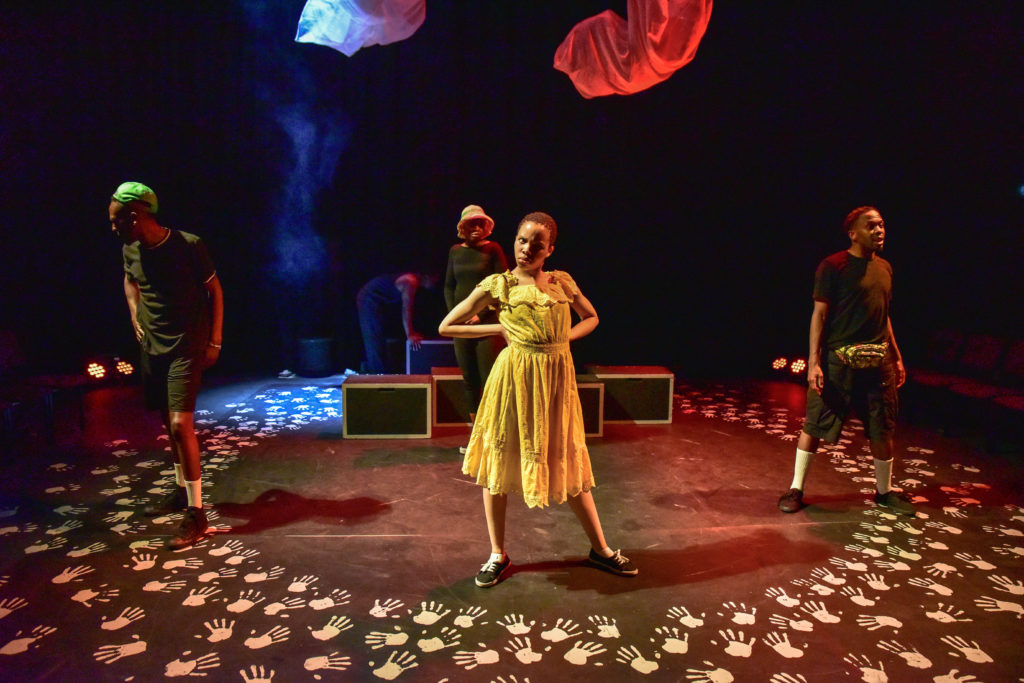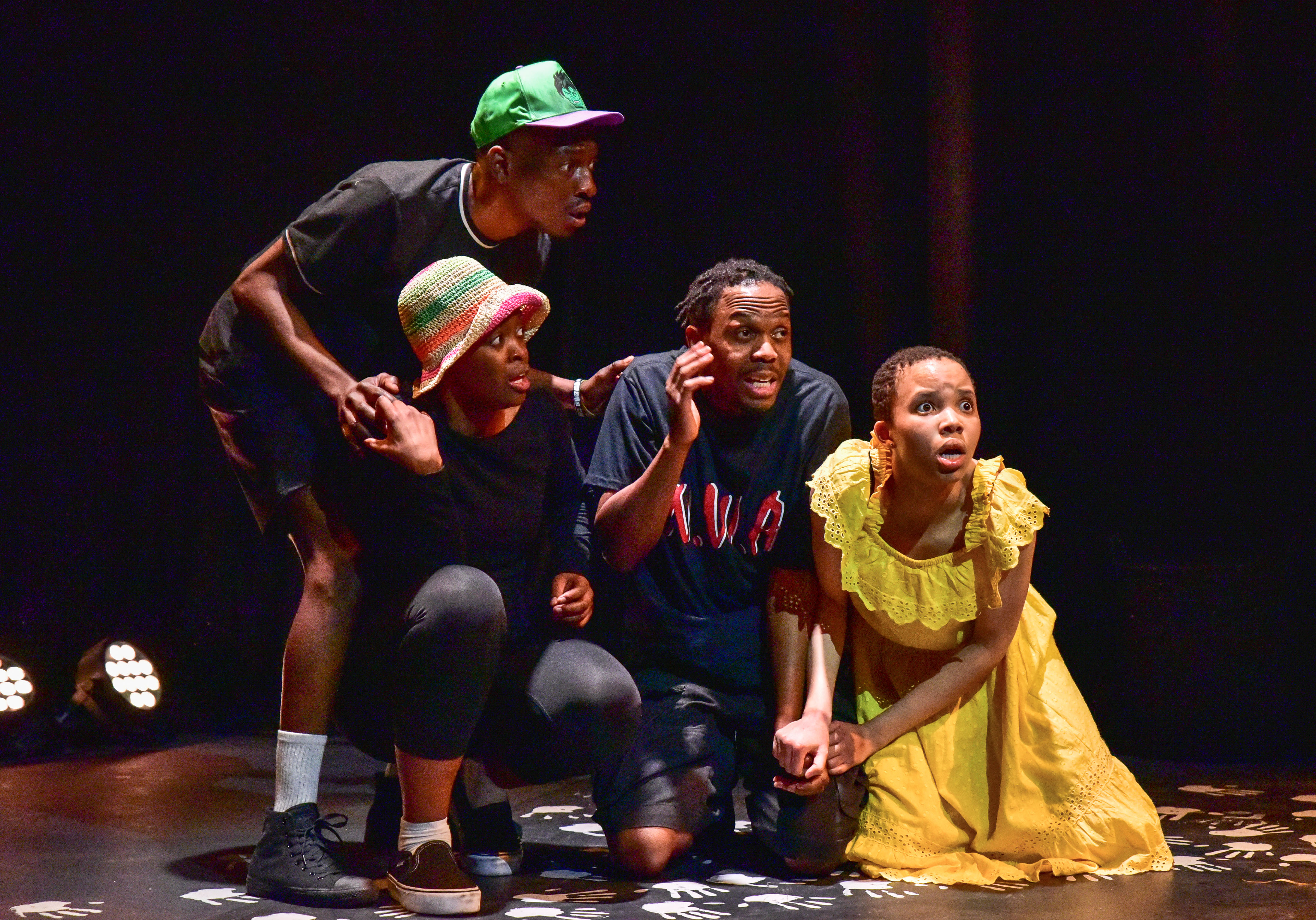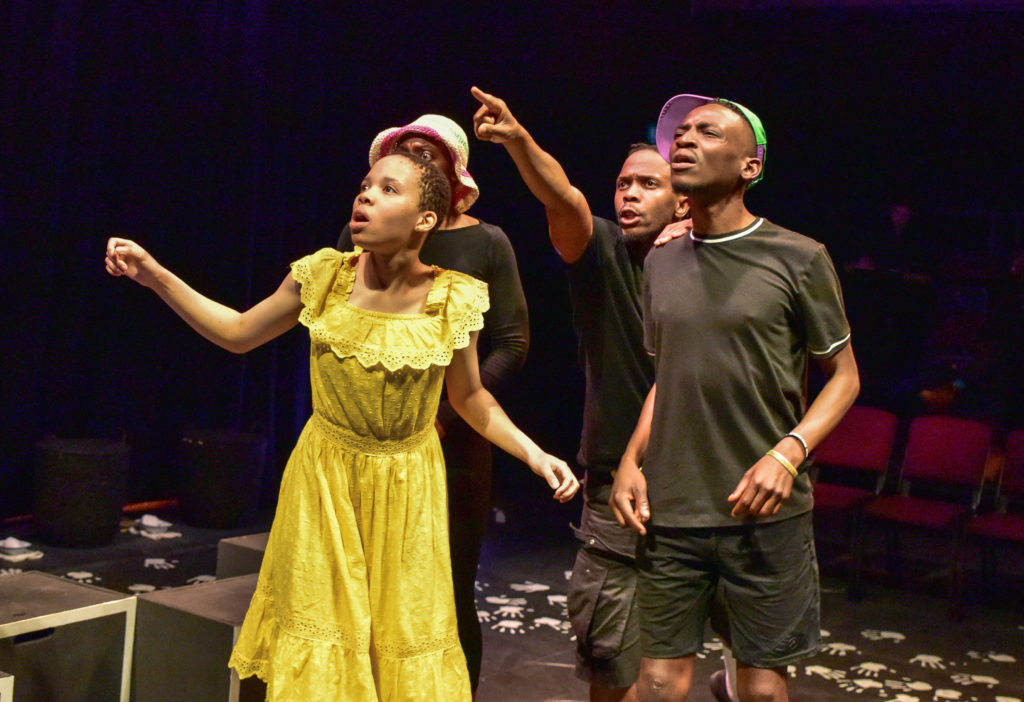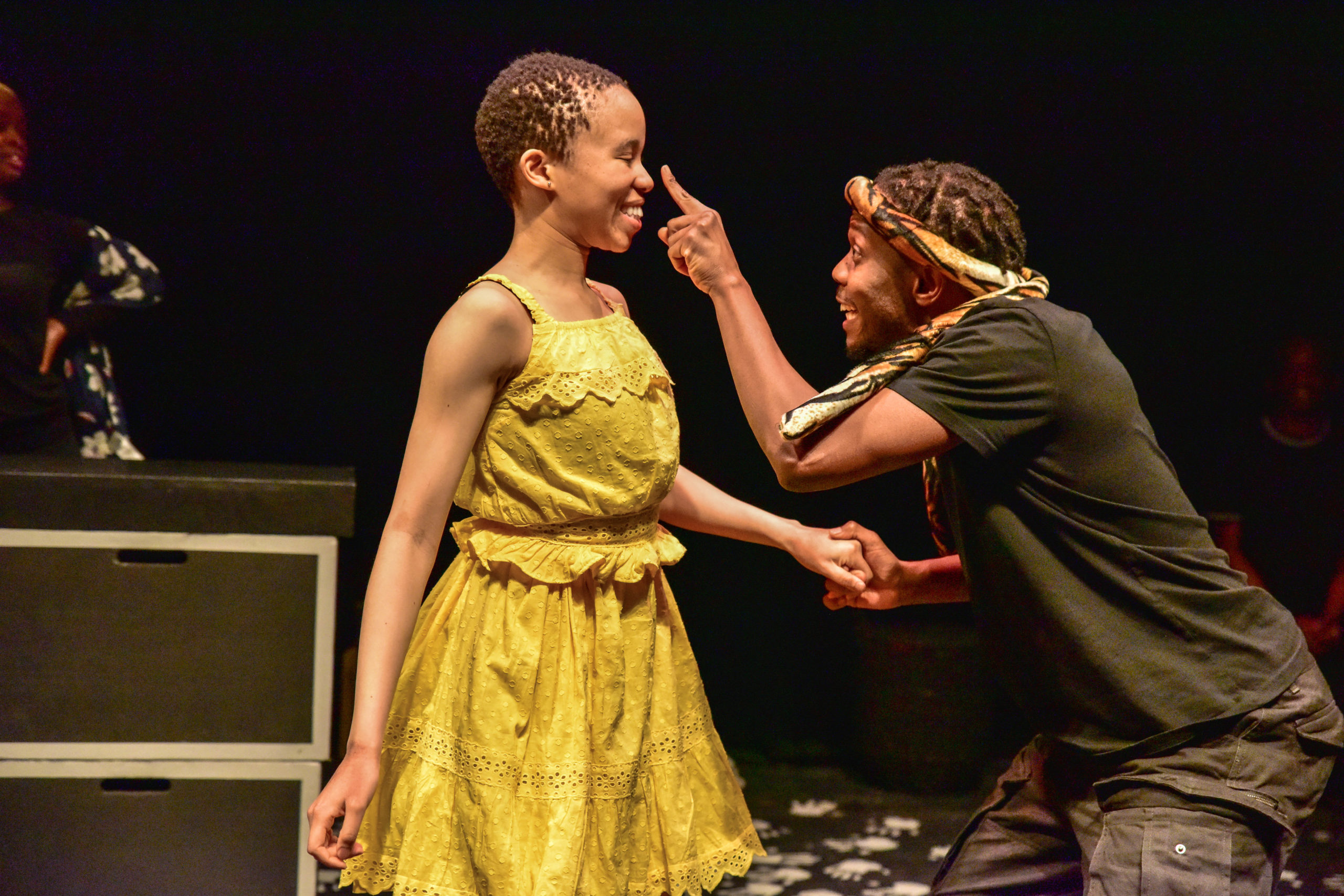We Need New Names – Brixton House, London
Adapted from NoViolet Bulaweyo’s acclaimed novel, We Need New Names is a coming of age tale split across continents.

We Need New Names
A young girl growing up in Zimbabwe moves to the America she has dreamed of, but finds her experience of the Midwest is not what she had imagined. Such is the premise of NoViolet Bulaweyo’s 2013 debut novel, We Need New Names. A coming of age tale, it explores themes of home and belonging, assimilation and loss. Theatre companies Fifth Word and New Perspectives have collaborated to bring Mufaro Makubika’s adaptation of Bulaweyo’s story to the stage. Audiences can see it at Brixton House until 6 May as part of a UK tour.
The format of the novel lends itself quite well to a theatrical setting, falling neatly into two halves. In the first, we see Darling at home with family and friends. A childhood amidst the chaos of the Mugabe era. In that way that children have, the youngsters process the world around them through play: dreams of far off countries, dancing to receive the best gifts from strangers, or trying to get the baby out of little Chipo’s belly. Even the spectre of AIDS or confrontations between white farmers and paramilitary gangs can be subsumed into the imaginative world of childhood to a point. When Darling learns she will be leaving for a new life with her Aunt Fostalina in America, she is sad to leave her friends but excited for the opportunities ahead of her.
The second half transports us to Kalamazoo, Michigan. Now living with Fostalina, Darling’s life in America isn’t quite what she imagined. As she navigates her teenage years she must also cope with family and financial pressures, ignorant comments about her African origins, and uncertainty about her future. She misses home, but going back is not easy. Meanwhile, life back in Paradise has not stayed still in her absence. Where does Darling belong, and what will the future hold?

Creating Worlds On Stage
The glorious thing about a good adaptation is that you don’t need to have read the original. And thankfully for me this is the case here. I haven’t yet read Bulaweyo’s novel, and yet enjoyed Makubika’s adaptation as a well-crafted tale in its own right. A cast of six actors play all roles, slipping in and out of character as children, grandparents and other family members, the farmers and paramilitary gang mentioned above, and a police officer. The scenes of Darling and her friends playing together as children are a wonderful starting point. Makubika has such a way of capturing the world of childhood: half-understood adult phrases, all-consuming games, tempers flaring and as quickly fading. Monique Touko, directing, sustains an energy which makes these young characters believable. It’s not often I’ve felt myself transported back to the playground but these scenes achieved it.
While the world and its burdens linger in the background of the first half, intruding into the children’s fun and then retreating, the opposite is true of life in Michigan. The pattern is reversed, with moments of levity punctuating an increasingly troubling experience of life in the West. These lighthearted scenes are necessary to break the tension, and come mostly from domestic familiarity. Her family and people from home are a way for Darling to connect to a place she longs for.
Simple set design by Ingrid Hu allows us to focus on Darling and her story. Hand prints mark out the space of the stage, with what look like packing cases delineating different scenes. Clever lighting by Adam King separates Africa from Michigan, as do flourishes in the set design. The costume design is equally clever: Darling, in her yellow dress, is the focus amongst an otherwise black-clad cast. I felt as if the complexities of the literary format had been packed up and taken away, leaving the essential storytelling elements.

Final Thoughts
If the creative team and playwright set the stage literally and figuratively, the actors themselves must still bring the characters and their stories to life. The cast of We Need New Names do a wonderful job. Lukwesa Mwaba portrays Darling with aplomb, imbuing the character with all the uncertainties and contradictions of a young person trying to find out where they belong.
The other actors are uniformly excellent. As the children we feel Munashe Chirisa’s cockiness as Godknows. Anashe Danai’s fear and trauma (and later weariness) as Chipo. Princess Khumalo is a strong and nuanced Aunt Fostalina, carrying the weight of a family on her shoulders as well as navigating Zimbabwean and Western expectations of womanhood. Tatenda Madamombe is a counterpoint to Fostalina’s character growth, representing the traditional patriarch and immigrant parent, while Kalungi Ssebaneke is a poignant Shaka Zulu: like Darling he is longing for a home he cannot return to, and feeling increasingly displaced in America.
We Need New Names is a powerful theatrical experience. These are characters and stories we need more of. And a demonstration of how a strong narrative can connect to audiences across different formats. Don’t miss your opportunity to see this work on stage: London audiences can catch it at Brixton House until 6 May. If you are booking, sight lines are best from rows A, C and D.
Salterton Arts Review’s rating: 4/5
We Need New Names on until 6 May 2023 at Brixton House. See full UK tour dates here.
Trending
If you see this after your page is loaded completely, leafletJS files are missing.

